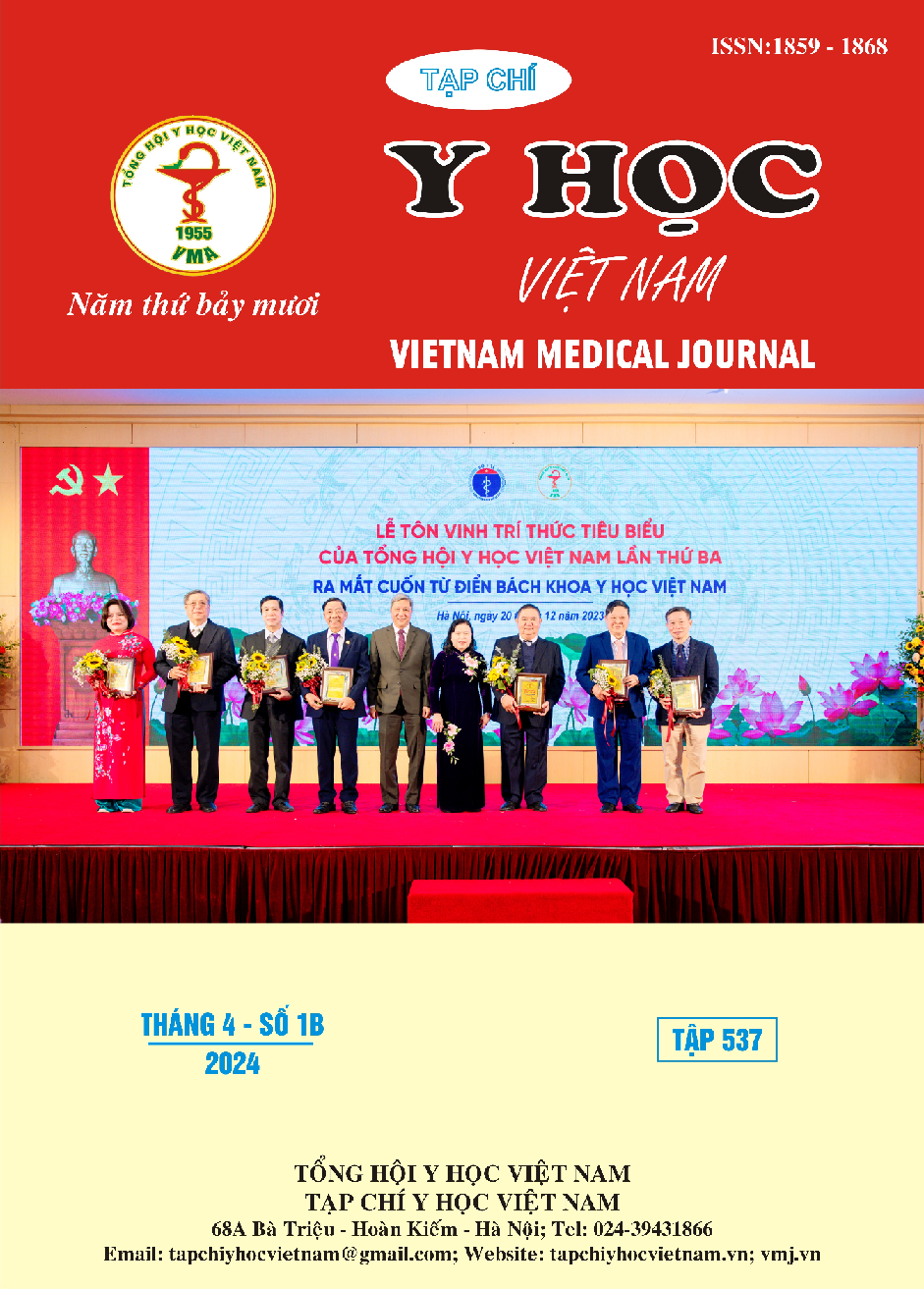RESULTS OF TREATMENT OF CHRONIC HEPATITIS C WITH DIRECT ANTIRETROVIRAL DRUGS (DAAS) IN HIV PATIENTS AT THE DEPARTMENT OF TROPICAL DISEASES, PHU THO PROVINCIAL GENERAL HOSPITAL
Main Article Content
Abstract
Background: HIV/HCV co-infection is common and poses many challenges for patients and healthcare workers. We did this research to: Objective: To evaluate the results of treatment of chronic hepatitis C with direct antiretroviral drugs (DAAs) in HIV patients at the Department of Tropical Diseases, Phu Tho Provincial General Hospital. Subjects and methods: a descriptive study of 46 patients diagnosed with HIV/HCV co-infection, who were indicated for direct antiretroviral therapy (DAAs). Results: The study subjects were mainly in the age group 40 - <50, accounting for 63.0%. The mean age was 44.9 ± 5.8 years old. Men with 89%. 52.1% of patients have a habit of using a lot of alcohol. The route of HCV transmission were through injecting drugs, accounting for 86.9%. The serum AST level increased by >40, accounting for 68.1%. The patient's ALT level increased, accounting for 66%. The high serum GGT index with a level > 200 is 31.9%. There were 39.1% of patients with liver fibrosis level F4. The number of patients with the virus level 4-6 (log10 copies/ml) was the highest, accounting for 53.2%. 97.8% (45/46) of the patients had a sustained virological response after 12 weeks of treatment. The values of hemoglobin, white blood cells, platelets, creatinine, billirubin, and albumin did not have any difference after 12 weeks of treatment p> 0.05. The average value of AST, ALT, GGT, APRI, and Fib-4 index changed to the downtrend statistically significant with p < 0.05. Viral quantification value after 12 weeks of treatment has a significant change with statistical significance (p < 0.001). No serious adverse effects have been recorded. Conclusion: Initial evaluation of the good efficacy of direct antiretroviral drugs (DAAs) in the treatment of HCV infection in HIV patients. The sustained virological response was good after 12 weeks of treatment, and the liver enzyme index and liver fibrosis index were improved. No serious adverse effects have been recorded.
Article Details
Keywords
Direct antiretroviral drugs (DAAs), HIV/HCV co-infection.
References
2. Smith CJ, Ryom L, Weber R, et al. Trends in underlying causes of death in people with HIV from 1999 to 2011 (D:A:D): a multicohort collaboration. The Lancet. 2014;384(9939):241-248. doi:10.1016/S0140-6736(14)60604-8
3. Pawlotsky JM, Negro F, Aghemo A, et al. EASL recommendations on treatment of hepatitis C: Final update of the series☆. J Hepatol. 2020; 73(5): 1170-1218. doi:10.1016/j.jhep.2020. 08.018
4. Berenguer J, Rodriguez E, Miralles P, et al. Sustained Virological Response to Interferon Plus Ribavirin Reduces Non-Liver-Related Mortality in Patients Coinfected With HIV and Hepatitis C Virus. Clin Infect Dis. 2012;55(5):728-736. doi:10.1093/cid/cis500
5. Prakash O, Mason A, Luftig RB, Bautista AP. Hepatitis C Virus (Hcv) And Human Immunodeficiency Virus Type 1 (Hiv-1) Infections In Alcoholics.
6. Shafran SD. HIV Coinfected Have Similar SVR Rates as HCV Monoinfected With DAAs: It’s Time to End Segregation and Integrate HIV Patients Into HCV Trials. Clin Infect Dis. 2015;61(7):1127-1134. doi:10.1093/cid/civ438
7. El Kassas M, Elbaz T, Hafez E, et al. Safety of direct antiviral agents in the management of hepatitis C. Expert Opin Drug Saf. 2016;15(12): 1643-1652. doi:10.1080/14740338.2017.1240781
8. Alessio L, Onorato L, Sangiovanni V, et al. DAA-Based Treatment for HIV–HCV-Coinfected Patients: Analysis of Factors of Sustained Virological Response in a Real-Life Study. Antivir Ther. 2020;25(4):193-201. doi:10.3851/IMP3353


